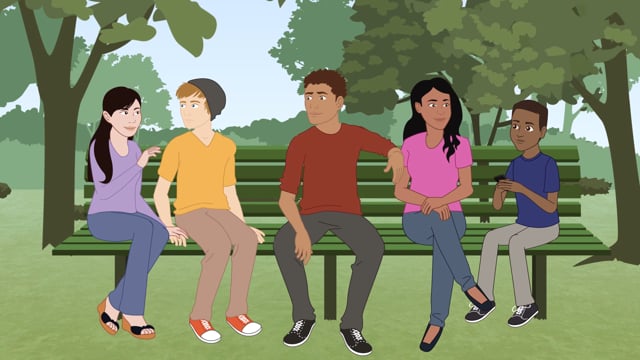- Home
- Humana Medicaid
- Kentucky Medicaid
- Medicaid extras
- Health and wellness
- Parents Home
- Para Padres
- A to Z Dictionary
- Allergy Center
- Asthma
- Cancer
- Diabetes
- Diseases & Conditions
- Doctors & Hospitals
- Emotions & Behavior
- First Aid & Safety
- Flu (Influenza)
- Food Allergies
- General Health
- Growth & Development
- Heart Health & Conditions
- Homework Help Center
- Infections
- Newborn Care
- Nutrition & Fitness
- Play & Learn
- Pregnancy Center
- Preventing Premature Birth
- Q&A
- School & Family Life
- Sports Medicine
- Teens Home
- Para Adolescentes
- Asthma
- Be Your Best Self
- Body & Skin Care
- Cancer
- Diabetes
- Diseases & Conditions
- Drugs & Alcohol
- Flu (Influenza)
- Homework Help
- Infections
- Managing Your Weight
- Medical Care 101
- Mental Health
- Nutrition & Fitness
- Q&A
- Safety & First Aid
- School, Jobs, & Friends
- Sexual Health
- Sports Medicine
- Stress & Coping
Secondhand Smoke
What Is Secondhand Smoke?
Everyone knows that smoking is a bad idea. But being around someone who smokes is also bad for your health.
Secondhand smoke is a mix of:
- the smoke coming from the burning end of a cigarette, cigar, or pipe, called sidestream smoke
- the smoke that a smoker breathes out, called mainstream smoke
What Are the Dangers of Secondhand Smoke?
Secondhand smoke contains thousands of chemicals that are toxic to the body. Breathing in secondhand smoke makes you more likely to have:
- ear infections
- lung infections (like pneumonia)
- asthma flare-ups
- frequent colds and coughs
- tooth decay
Later in life, exposure to secondhand smoke can increase a person's risk for:
- hearing loss
- lung and other cancers
- strokes
- heart disease
- weak bones
What Can I Do About Secondhand Smoke?
Chances are, you know someone who smokes or vapes. Whether you smoke or you're regularly around someone who does, it's never healthy to breathe in tobacco smoke. Even occasional or short-term exposure can take a toll on the body.
Ask the smokers you know to:
- Take all their smoke breaks outside, away from other people, especially kids and pregnant women. Smoke lingers in the air for hours after cigarettes are put out. If someone smokes anywhere inside, other people are breathing in that smoke too. Because smoke sticks to people and their clothing, when smokers come back inside, they should wash their hands and change their clothing, especially before holding or hugging children.
- Never smoke in the car. Even blowing smoke out the window does little, if anything, to reduce smoke exposure.
Just as a person who smokes chooses to light up, nonsmokers have a choice too. You can walk away from other people's smoke at home, school, work, restaurants, even friends' and family members' houses.
Note: Secondhand marijuana smoke contains the same dangerous chemicals as tobacco cigarettes. It also contains THC, the ingredient in marijuana that causes someone to feel high. The secondhand aerosol (mist) from e-cigarettes, with or without marijuana, also contains chemicals and can be harmful. Try to stay away from people who vape too.
If you smoke or vape, try to quit. Quitting isn't easy because nicotine is very addictive. But consider the benefits: You'll look, feel, and smell better, and have more money saved to go out and show off the newer, healthier you!
Support groups and tobacco-free programs can help people stop. Check out these online resources:

7 Reasons to Be Smoke-Free
Most people don't smoke. From yellow teeth to coughing, here are seven reasons why that's a good thing.

© 1995- The Nemours Foundation. KidsHealth® is a registered trademark of The Nemours Foundation. All rights reserved.
Images sourced by The Nemours Foundation and Getty Images.